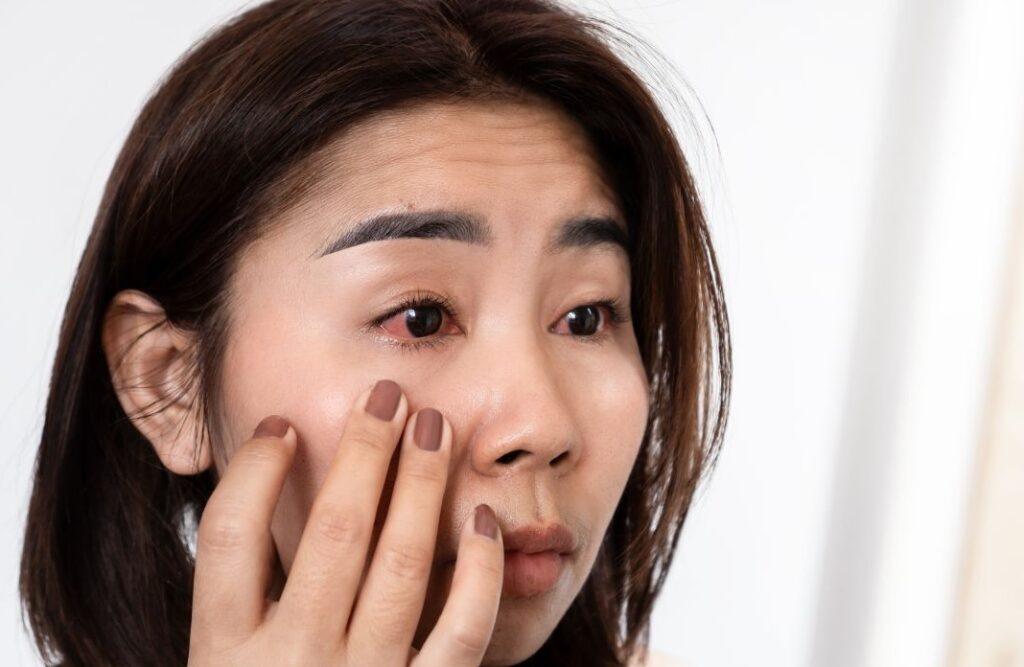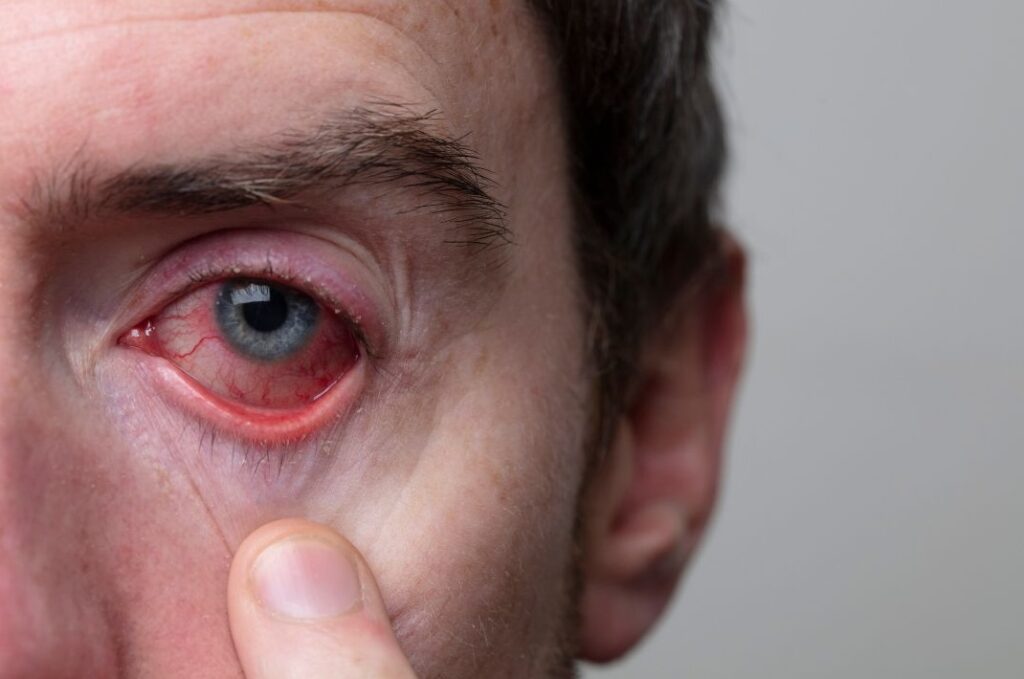Noticing red, swollen, puffy eyes in the mirror can be unsettling. Whether they appear suddenly or linger for days, eye puffiness and redness can stem from various causes—some minor, others requiring medical attention.
Common culprits include allergic reactions, infections, lack of sleep, or excessive crying. Sometimes, environmental factors like dust, smoke, or harsh weather can also irritate the eyes. While these issues are usually temporary, persistent or severe symptoms could indicate an underlying condition.
Identifying the cause of red, swollen, puffy eyes helps you choose the right treatment more quickly. In this article, we’ll explore the most frequent causes, how to identify them, and simple remedies that may help. If symptoms worsen, affect your vision, or don’t improve, it’s always best to seek medical advice.
Allergic Reaction

Allergies are a common reason for red, swollen, puffy eyes. When the immune system reacts to harmless substances, such as pollen, dust mites, pet dander, or certain cosmetics, it releases histamines. This triggers inflammation, itching, and watery eyes, often accompanied by sneezing, nasal congestion, or a runny nose.
If allergies are seasonal, symptoms may worsen during spring and summer when pollen levels are high. However, indoor allergens like mould, household dust, and perfumes can cause irritation year-round. Even eye makeup and skincare products may lead to allergic reactions in some individuals.
To manage symptoms, try:
- Over-the-counter antihistamines to reduce allergic responses.
- Anti-allergy eye drops to soothe irritation.
- Avoiding allergens where possible, such as keeping windows closed during high-pollen seasons.
If symptoms persist or worsen, a doctor may recommend prescription allergy medications or suggest allergy testing to pinpoint specific triggers.
Conjunctivitis
Conjunctivitis, or pink eye, is a common cause of red, swollen, puffy eyes. It occurs when the thin membrane covering the white of the eye becomes inflamed due to viruses, bacteria, or allergens. Symptoms often include itching, burning, excessive tearing, and swollen eyelids.
- Viral conjunctivitis is highly contagious and typically starts in one eye before spreading to the other. It causes redness, watery discharge, and irritation, but usually clears up on its own within one to two weeks.
- Bacterial conjunctivitis can produce thick, yellow or green discharge and may require antibiotic eye drops for treatment.
- Allergic conjunctivitis is triggered by allergens and usually affects both eyes, causing itchiness, redness, and watery discharge.
To prevent the spread of viral or bacterial conjunctivitis, wash your hands frequently, avoid touching your eyes, and don’t share personal items like towels or makeup. If symptoms worsen, persist, or cause vision changes, seek medical advice.
Hayfever

Hayfever, or seasonal allergic rhinitis, is another major cause of red, swollen, puffy eyes. It occurs when the immune system overreacts to airborne pollen, triggering itchy, watery, and irritated eyes, along with sneezing, nasal congestion, and a runny nose.
Pollen levels vary throughout the year:
- Tree pollen is common in spring.
- Grass pollen peaks in summer.
- Weed pollen can linger into autumn.
On high-pollen days, symptoms tend to worsen, especially after spending time outdoors. Exposure can be reduced by:
- Wearing sunglasses to shield your eyes.
- Showering and changing clothes after being outside.
- Keeping windows closed to prevent pollen from entering your home.
- Using antihistamines or anti-allergy eye drops for relief.
For severe cases, a doctor may recommend prescription-strength hayfever treatments or immunotherapy to help desensitise the immune system over time.
Lack of Sleep
Not getting enough rest can leave you with red, swollen, puffy eyes due to fluid retention, poor circulation, and eye strain. When you’re sleep-deprived, blood vessels around the eyes dilate, causing redness and puffiness, while fluid can accumulate under the eyes, leading to a tired and heavy sensation. You may also experience dark circles, dryness, or sensitivity to light.
To reduce puffiness caused by lack of sleep:
- Aim for 7-9 hours of quality sleep per night.
- Sleep with your head slightly elevated to prevent fluid buildup.
- Use a cold compress in the morning to soothe swelling.
- Stay hydrated and reduce salt intake to minimise water retention.
If puffiness persists despite improving sleep habits, underlying issues like allergies or dehydration could be contributing factors.
Excessive Crying

Crying is a natural response to emotions, but prolonged or intense crying can leave you with red, swollen, puffy eyes. This happens because tear production increases salt concentration around the eyes, leading to fluid retention and irritation. Additionally, frequent eye rubbing during crying can worsen inflammation and redness.
To reduce puffiness after crying:
- Apply a cool compress to soothe swelling and irritation.
- Stay hydrated to help flush out excess salt and reduce fluid retention.
- Use lubricating eye drops if your eyes feel dry or irritated.
- Avoid rubbing your eyes, as this can make swelling worse.
Swelling from crying often eases within a few hours. If puffiness persists or happens frequently without an obvious cause, conditions like allergies or eye strain could be involved.
There are many possible reasons for red, swollen, puffy eyes, ranging from allergies and infections to lack of sleep and excessive crying. Identifying the cause can help you find the best way to manage symptoms.
Simple remedies like cold compresses, antihistamines, and better sleep habits can often provide relief. However, if your symptoms persist, worsen, or affect your vision, it’s important to seek medical advice to rule out any underlying conditions.
Occasional puffiness is normal, but if you’re noticing persistent symptoms, vision changes, or worsening irritation, a healthcare consultation can offer tailored advice. At WePrescribe, we’re here to help you find clear answers, quickly and discreetly.


